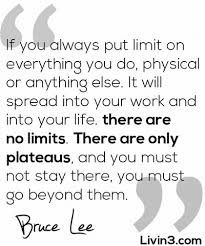How to grow self confidence in athletes 
Self confidence in athletes is just as important as self confidence towards anything you set your mind to achieving.
There are no flukes in becoming a champion athlete. You must adopt the mindset of wanting to be the best or better still knowing that you are the best.
You need to develop a game day persona that is unshakable and determined to succeed.
Many people talk about being in the zone and achieving brilliant results because they can shut out all distractions once they are ready to compete.
As a sporting enthusiast and competitor my observations are that these people who adopt the game day persona seem to have more time. It’s like they can do everything in slow motion and execute their moves seemingly effortlessly.
What is it that enables them to do this?
- It is many hours of deliberate practice to perfect their skills.
- It is the desire to be better every single day.
- It is about focusing on how to improve rather than getting the result they want.
- It is about focusing on the task at hand.
- It is about growing as an athlete
- It is about realizing your strengths and improving areas of deficiencies.
10000 hours of hard work.
This is the clincher! The work effort required to achieve the level of mastery in anything is 10000 hours of deliberate focused practice. This factor is what sorts out brilliant champions from just players.
It is hard to do and easy not to do. Most athletes work very hard but are they prepared to go the extra mile? Do they see themselves as becoming the best? An athlete who wants to dominate his sport needs to have the self confidence to believe that they can. Just believing is not enough. It is about leaving no stone un turned until they can demonstrate to everybody their strong desire to succeed at the level of superiority over a length of time.
Lisa Brown from the courage to win in sport paints the picture of what is required to achieve such an incredible feat.
Lisa writes :
“In Outliers, Malcolm Gladwell reveals why some men and women achieve extraordinary things.
One undeniable factor is the 10,000 hour rule.
Whether it’s Mozart, the Beatles, or Bill Gates, all extraordinary achievers put in a minimum of 10,000 hours developing their skills.
And there are no exceptions.
This doesn’t mean that talent isn’t a factor.
You must have some innate talent.
Assuming a minimum base of talent, though, what takes you from good to great is how hard you work.
Gladwell says, “The people at the top don’t just work harder or much harder. They work much, much harder.”
To succeed, you don’t focus on making yourself rich, famous, or powerful.
That leads to get rich quick schemes and chopping and changing.
You focus on becoming world class – an outlier – at something that helps people.
“I’d Never Do That Much Work”
When I was 18, I wanted to become the best player in the world at my sport.
I put together an elaborate binder that included:
-A 21 page essay on how I could improve my skills
-Monthly, weekly and daily fitness regimens
-Goals for shooting sessions and practices
-Mental toughness training strategies for each week
The binder was my ‘Bible’ until I was named captain of Team Canada ten years later.
I kept my binder a secret until a talented young player asked me for help making the National Team. She studied it and finally confessed, “It looks great, but to be honest, I’d never do that much work.”
There are two things about this story that are important.
First, notice the dates.
By 18, I had been already been practising for ten years.
By 28, when I reached my goal, I had another ten years under my belt. I had definitely reached the 10,000 hour mark (it often takes about ten years, but it took me twenty).
Second, the commitment.
My young friend loved her sport.
She just didn’t love it as much as I did.
That’s why she experienced my binder as “work”.
If I thought I was “working” in my 10,000 hours, I probably wouldn’t have done it.
Which is why her path was the right one for her.
She became a world class athlete with a huge list of accomplishments that made her happy.
Every goal is a personal choice.
To succeed and be happy, you don’t need to be Mozart, Bill Gates or the Beatles.
But you do need to excel at what matters to you.
And that means you need superior technique.
The love of what you do is crucial!
It would be impossible for an athlete to devote 10000 hours to something they did not love?
Your starting point is to ask yourself, ” do I love what I am doing?’
The next question is “am I devoted enough to want to become the best?”
As Lisa Brown points out everything that follows from there is secondary. You will not see the sacrifices you need to make as sacrifices if you are determined to become the very best at your chosen sport.
Your self confidence will grow and you will embark on a series of steps that will lead you towards your goal.
Be prepared to hold that strong desire to achieve extraordinary success firmly and unshakably in your mind.
You will do what it takes no matter what.
This means seeking out and following through with the information required for you to grow your self confidence which heralds to the world ” I am the greatest”.
Score Your Way To Good Health - With Our Healthy Lifestyle Plan
Score your way to good health with our healthy lifestyle plan and it's unique 70 point weekly scorecard!



